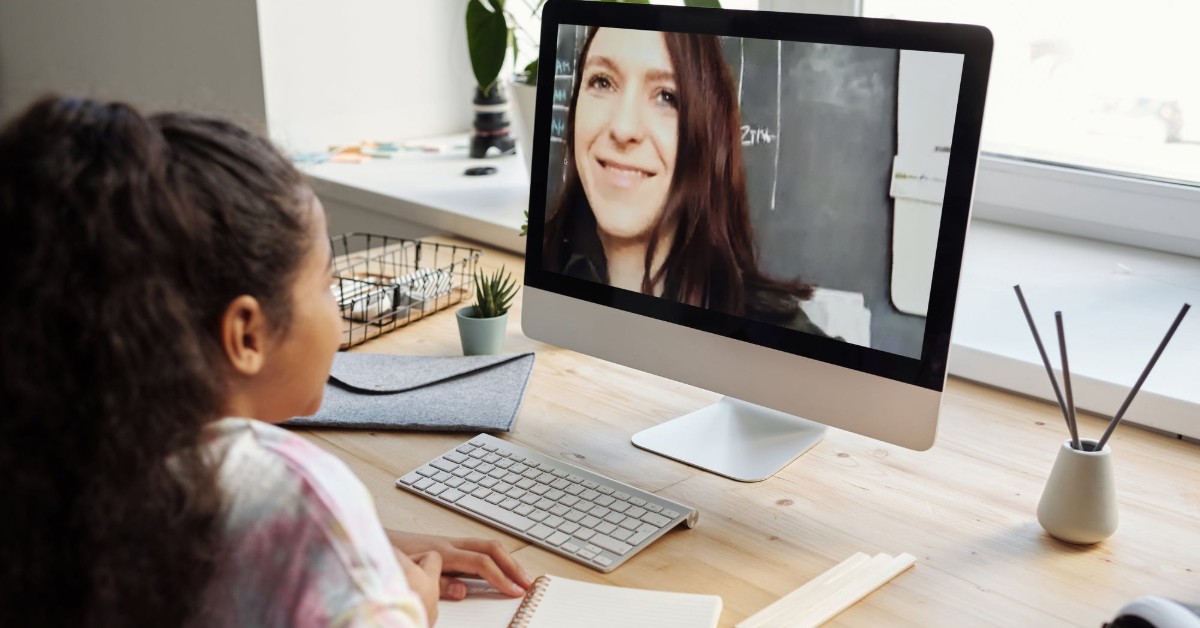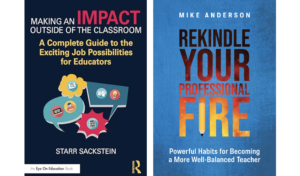Routines to Teach: Fall of 2020

Last week I had the privilege of teaching two online workshops for teachers about getting ready for the upcoming school year. They were both so much fun! We played games that teachers can use with their students (either in person or online), shared strategies for co-creating rules with students in K-12 classrooms, reconnected with our deeply held positive beliefs about why we teach, and so much more.
One of the most practical activities we did was to co-create lists of routines we might need to teach this fall as we begin facilitating learning with students. One of these workshops was with Bedford, NH educators, who are heading back in a few weeks with a hybrid model. Students will be in school some days and at home others. The other workshop was held through UNH Professional Development and Training and was attended by K-12 educators from around New Hampshire who are heading back to a variety of settings.
We generated routines in five key categories: traditional school routines, academic routines, safety/cleanliness routines, online learning and at-home learning routines. We also had a final category for routines that didn’t seem to fit in these other five. It also turned into a spot where people could record questions they had–so they could remember to look into answers later on.
There were so many great ideas generated by both of these groups, that I wanted to share them. I spent a few minutes combining the lists (and trying to eliminate duplicates), but I decided to err on the side of getting these ideas out quickly, since I know so many educators are thinking about these very things right now.
Traditional School Routines
- Moving chairs
- Getting settled at beginning of class
- Responding to the hand/chime signal
- Sharpening pencils
- Bathroom/drinks
- Snack routine
- Attendance
- Lunch count
- Lunch/recess routines
- Homeroom- navigating your way there
- When and how to check in with teachers
- Bathroom procedures
- Navigating the school
- How to pack up/unpack…where will they keep their stuff?
- Managing materials
- Time management
- Using “school” voices
- Cleaning routines
- Morning meeting routines
- Bussing routine-arrival and departure
- Playground routine
- Classroom libraries
- Take a break space
- Interacting well with others
- Fire drill
- Snack time
- Organization of materials – in/out of backpacks
- Sign-out sheets
Academic Routines
- Choosing a “just right” book
- Saving a document
- Supply management (no lockers)
- Loading a slide onto a microscope
- Using calculators in math
- Using search engines–research
- How “quick writes” work in writing
- Partner chats
- Effective group work strategies
- Using Google Classroom
- Everything art supplies! (How to clean a brush, etc.)
- Math/reading groups with teacher
- Respectful/active Listening
- How to ask for help
- Taking turns
- Digital citizenship
- Chromebook protocols
- Creating a plan for success at the beginning of each block–executive functioning
- Organization of classroom materials
- Build a schedule for the week
- How to read directions carefully
- Goal setting
- Teach students how to handle online routines, i.e. email, documents, etc.
- Self-regulation strategies
- How to use the library
- Finding classroom reference materials
- Using writing materials
Online Learning Routines
- Using “reaction” feature on Zoom
- Mute/unmute
- How to enter breakout room
- Get comfortable with using video while in virtual class
- How to ask for help
- Digital literacy skills should be discussed often
- Expectations of Google Meet (face/no face, placement, etc.)
- Using email to communicate
- How to use other online resources
- Chat box – keep it relevant and appropriate
- Home knowledge of schedule
- Tech (use in school before)
- Role of parents/adults
- Logging in/logging off
- Sending teachers a proper email (how to ask for help via email)
- How to trouble shoot on their own with online platforms
- Using Zoom for small groups while in school (to keep physical distance)
- Using Google calendar
- Hybrid morning meetings
- Home-school online buddies for A/B schedule
Safety/Cleanliness Routines
- Standing 6 ft. apart
- Walking in the hallway-6 ft social distance
- How to greet w/o touching
- Using hand sanitizer
- How to sneeze into elbow (and what to do with mask!)
- Coughing safely
- Using individual plastic containers to store personal math manipulatives
- Sanitizing/washing hands before/after browsing the classroom library
- Games to play while waiting for the teacher to sanitize the classroom between classes
- Using the bathroom-COVID style
- Washing hands
- Entering a room with social distancing
- Cleaning space
- When/how to wear masks
- How to navigate the school with one-way traffic patterns
- Cleaning materials/supplies
- Turning in assignments
- Sanitizing phones
Independent Work Routines–Home
- Finding a good work spot
- Using a timer to structure independent work time
- Screening out distractions
- How to know the schedule (parents/students)
- Where to put learning supplies–keep them organized
- Personalize space with privacy folder
- Create a list of options for creating a schedule
- Managing stress and time
- Clear work from home behaviors vs. school behavior
- Self-care for adults
- What kind of music supports concentration (and what doesn’t)
- How to check in with yourself (on a scale of 1-5, how am I feeling about this project/my day/etc.)
- Self-regulation strategies
- Create an agenda and prioritize tasks (home and school)
- Family and student create a plan to thrive (what they need v. what others think they need)
- Mindfulness routines
Other Routines/Questions
- How to deal with a problem
- New mask after sneezing?
- How to redirect kids who may be near the location, e.g. bathroom, instead of walking all around, following the arrow?
- Going out to busses- how do we do dismissal on rainy days? (elementary)
- How will substitute teaching work?
- Procedure for reporting kids or sending kids to nurse – runny nose?
- Parent expectations (what to expect)
- Sensory diets
- Level of stress- how to handle the in person and online for high school students–make a reasonable schedule
- Teach parents how to log in to classroom, meet, PowerSchool, etc.
- Explain purpose of assignments for at home
- Reinforcing skills at home that were taught the day before
- Self-care
- Outdoor lessons and expectations
Aren’t these amazing?
What I found most encouraging about this process was the positive energy teachers brought to this process. I think, in part, this was because it finally felt like we were doing something. The waiting and the uncertainty has been so hard this summer.
And, even though these routines can be a little overwhelming (starting the school year felt overwhelming in the easiest of times), there was something comforting about creating the lists. As one teacher said, in the reflection after the activity, “I’m actually feeling really reassured.” After all, the same strategies we have used to teach routines in the past such as effective modeling and eliciting ideas from students can still be used (sometimes with slight modifications).
I hope these lists help you feel a little reassured as well!
We may have different routines to teach this fall, but strategies such as effective modeling and eliciting ideas from students can still be used!
-Mike Anderson Tweet
Author
-
Mike Anderson has been an educator for many years. A public school teacher for 15 years, he has also taught preschool, coached swim teams, and taught university graduate level classes. He now works as a consultant providing professional learning for teachers throughout the US and beyond. In 2004, Mike was awarded a national Milken Educator Award, and in 2005 he was a finalist for NH Teacher of the Year. In 2020, he was awarded the Outstanding Educational Leader Award by NHASCD for his work as a consultant. A best-selling author, Mike has written ten books about great teaching and learning. His latest book is Rekindle Your Professional Fire: Powerful Habits for Becoming a More Well-Balanced Teacher. When not working, Mike can be found hanging with his family, tending his perennial gardens, and searching for new running routes around his home in Durham, NH.
You may also like

Feeling Burned Out? Maybe It’s Time for a Shake-Up!
- July 12, 2024
- by Mike Anderson
- in Blog

How Teachers Can Forge Instructional Autonomy


